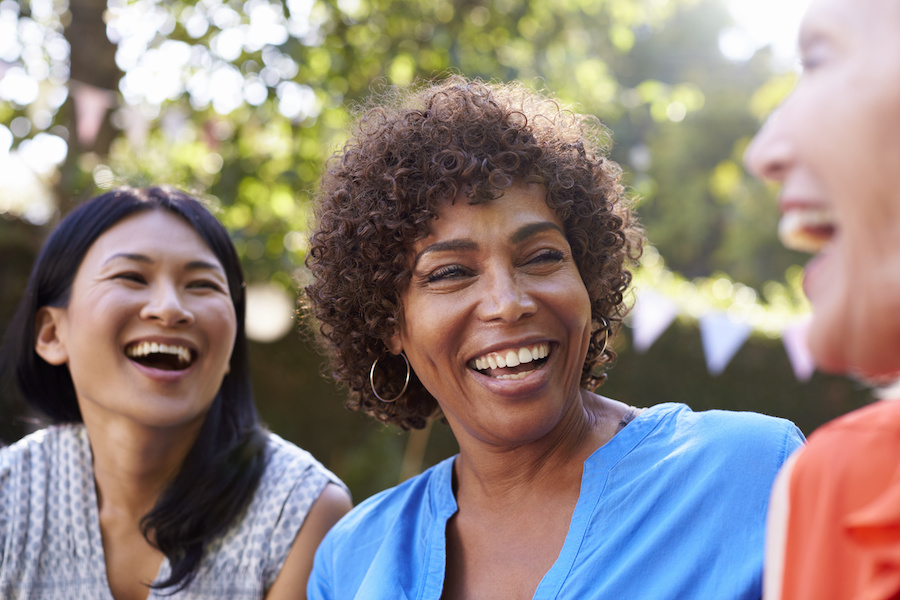
August 13, 2020
Diversity and Tolerance Starts with Mindful Self-Acceptance
“If your compassion does not include yourself, it is incomplete” ~ Jack Kornfield
The rallying cry echoing across our nation and around the world is screaming for diversity
and tolerance in light of racism and injustices.
Tolerance opens the door for diversity to make changes for the better by communicating
and exchanging ideas. However, we can’t communicate if we are not tolerant of others on
opposite sides who look different and/or have different opinions than ours. The question many are asking is, “How can I be more tolerant?”
The meaning of tolerance is “showing a willingness to allow the existence of opinions or behaviors that one does not necessarily agree with.” How can we do this if we are not
tolerant of our own feelings, thoughts and behaviors?
Mindfulness teaches us self-acceptance and how to acknowledge without judgement and with kindness. It encourages us to gently ask: What am I thinking? What am I feeling? What am I believing?
Through inner curiosity, we learn to embrace ourselves. It was through this that I also learned to love myself despite any rejection from others because of my skin color, or because I simply acted and thought differently.
Exploring Your Inner Self
I began my Mindfulness journey in the late 90s following Thich Nhat Hanh, a global spiritual
leader, poet, and peace activist, renowned for his powerful teachings and best selling Mindfulness books. Dr. Martin Luther King, Jr. called him “an Apostle of peace and
nonviolence” when nominating him for the Nobel Peace Prize.
Attending this gentle humble monk’s retreats at Deer Park Monastery, I sat crossed legged on the floor before him with a room filled with others, listening intently to his soft voice as he led us to mindfully be aware of our thoughts and emotions.
Tuning into those internal voices I was surprised to hear that I was rejecting myself because of disapproval from others, even though I had been on a spiritual journey and engaged in various self-help trainings all of my adult life.
I thought I loved myself, but I didn’t know I was entertaining thoughts of self-loathing. When I listened without judgment, I began selecting different, positive narratives about myself. Eventually, this led me to accept and appreciate myself despite what others may have thought of me.
At first, it took courage to explore my inner self by listening to my thoughts and feeling the heavy emotional sensations that sat heavily on my chest. Emotions (Energy in Motion) are often connected to negative thoughts from past experiences stored in our subconscious. Unresolved painful emotions that we push away and suppress, can show up as aches, pains, and often illnesses.
Learn how to be kinder to yourself and others and promote positive thinking with this Loving Kindness on-demand practice!
Non-judgmental observation of my thoughts and emotions gave me an openness to inner space. To my surprise, those heavy emotions and thoughts dissolved just by paying attention to them. Joy then bubbled to the surface causing happy tears to flow down my cheeks. I felt compassion for myself, and love! Love is the natural emotion we all have inside that is often covered over by toxic thoughts and emotions. Mindfulness acts like a laser melting them away.
How Mindfulness Transforms Seeds of Our Suffering
The recent protests for racial justice have brought up painful memories, stories, and thoughts from the past which many African Americans like myself are experiencing.
For me, old racial microaggressions surfaced from years of working as a publicist at several television networks, as the only minority in my departments.
Microaggressions are defined as daily verbal, behavioral and environment indignities. They can be intentional or unintentional, negative slights or hostile and derogative which can negatively impact self-esteem, mental and physical health issues for blacks.
One particular microaggression surfaced from many years ago when our oldest son was first accepted into the University of Southern California.
I was thrilled to be attending a freshman parent’s meeting, arrived early and sat next to a white woman with a welcoming smile and warm energy.
We laughed sharing commonalities about our lives. I liked this woman and hoped to connect with her in the future and was nearly speechless when she asked “Did your son get a sports scholarship here?”
I was so shocked and hurt that I could barely utter “No.” Her question implied to me that the only way my son, or any other black male could have been accepted into the college is through sports. This is a great achievement for many talented young people, but it’s not the only way blacks are accepted into colleges.
Back then I was hurt and filled with anger for the stereotyping of my son, and me.
Build the skills for navigating your emotions by registering for a live, expert-led Mindful Daily today!
Today if old microaggressions surface, I practice Mindfulness of thoughts and emotions, freeing myself from suffering. Simply observing my feelings with kindness embracing them with love allows me to tap into the infinite wisdom which is in each of us. I then have clarity and perspective on how to deal with racism in a nonviolent way, like writing this article to share how Mindfulness can help racial equality and social justice to make the world better.
Mindful Thinking and Mindful Speech
How would I respond to that comment today?
I would tell her that I was offended and that it’s important to be cognizant of words that can create joy or pain for others. This is called Mindful Speech, Wise Speech, or
Virtuous Speech, which gives peace and happiness to oneself and others.
I would gently share Mindfulness with her, so she could become aware of her personal biases and have the courage to face them. It’s the way to truly understand others and their experiences. Listening to thoughts that may be racist, and feeling the connected emotions offers deep insight and wisdom.
In this way, we can recognize what we are about to say before we say it, and respond mindfully. It helps us to speak from the heart with kindness and empathy. And what would I tell us both today? Keep an open heart and continue practicing Mindfulness. “Let us fill our hearts with our own compassion – towards ourselves and towards all living beings.” Thich Nhat Hanh
Learn how mindfulness practice can help you be more present in your daily life and better navigate uncomfortable or challenging situations with our 7 Days of Tuning In on-demand content!
Written by Janet Alston Jackson, eM Life Teacher
